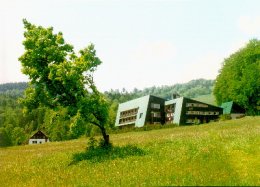Abstracts
Abstract:
1. Lipschitz truncation
The approximation of Sobolev functions by Lipschitz functions can easily be done by convolution. However, this will change the function on the whole domain. The Lipschitz truncation technique allows to construct an approximation that differs from the original only on a small set. The construction is closely related to the Calderon-Zygmund decomposition.
2. Discrete Sobolev spaces
We discuss a few properties of the discrete Sobolev spaces introduced by Ern and Burman. Elements of theses spaces are not Sobolev functions, but consists of local polynomials, which may jump on faces of the triangulation. These jumps are taken into account in the definition of the discrete Sobolev norms. We shall prove the usual tools such as embedding and trace theorem.
Abstract: We shall discuss the basic features of the theory of weighted inequalities for the Hardy-Littlewood maximal operator using recent approaches when available. We shall see that even introducing the constant of the weights in the theory, some of the classical results can be obtained in a simple way. We shall also consider the weights in the setting of Muckenhoupt bases, where some of the usual properties (like the reverse Hölder inequality) can fail.
Abstract: In very recent years there has been a revival of the classical theory of Singular Integrals with weights. New questions have lead to different methods improving very well known classical results in a very surprising way. In this minicourse we plan to give a short introduction to some aspects of these new point of view. The goal is to study Singular Integral Operators on weighted Lp spaces with sharp bounds in terms of the Ap or related constant. We will start by considering first the case of the Hardy-Littlewood maximal function where we will review some aspects of the classical theory from a modern point of view: new sharp Reverse Hölder inequalities, improvement of the Muckenhoupt-Buckley's theorem and the two weight case. Then we will explain and explore a very recent method due to A. Lerner which allows to change continuos singular integrals by discrete dyadic versions of them making possible to obtain sharp weighted bounds.
Abstract: Criteria for Lp-Lq boundedness of Volterra integral operator with Oinarov's kernel, Hardy-Steklov integral operator, iterated Hardy's operators and reduction theorems for the weighted inequalities on the cone of monotone functions are given.
